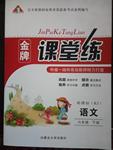题目内容
with hard work, pick up, declare war on, company, condemn
1. Kitty a lot of Spanish by playing with the native boys and girls.
2. Some of the president's advisers feared Hitler might theUnited States.
3. We are now moving to the point when lack of computer knowledge will many people to a life of low-skill and low-paid labour.
4. Sorry,I didn't realize you had in your house with you.
5. Only can you expect to get a pay rise.
1. picked up 2. declare war on 3. condemn
4. company 5. with hard work

练习册系列答案
 同步学典一课多练系列答案
同步学典一课多练系列答案 经典密卷系列答案
经典密卷系列答案 金牌课堂练系列答案
金牌课堂练系列答案 三新快车金牌周周练系列答案
三新快车金牌周周练系列答案
相关题目